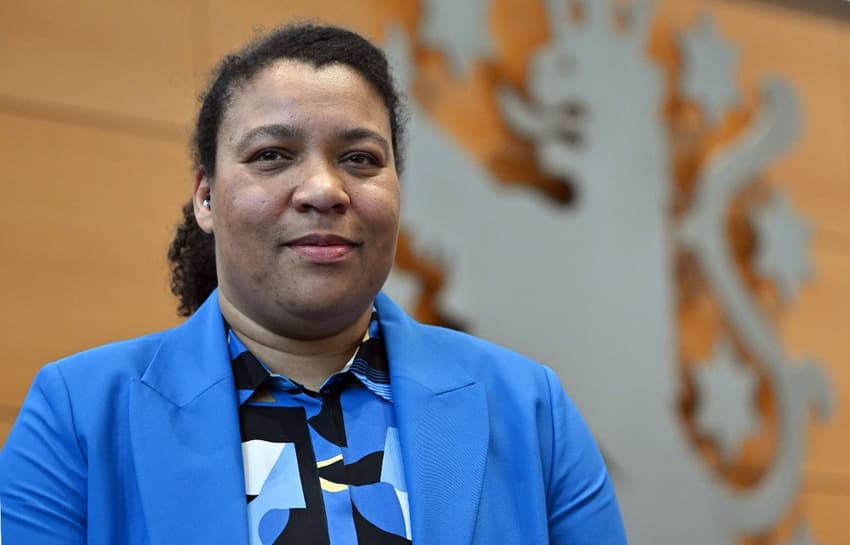Doreen Denstädt becomes eastern Germany's first black minister

Former policewoman Doreen Denstädt became the first black minister in ex-communist eastern Germany on Wednesday, taking over the justice and migration brief in a hotbed of right-wing extremism.
Denstädt, 45, belongs to the Greens and assumed the office in Thuringia state from Dirk Adams, who was fired after his management of immigration policy lost the support of the ecologist party.
Thuringia is governed by a fractious coalition of the far-left Linke party, the Social Democrats and the Greens who formed a bulwark against the far-right AfD party, which is polling at around 30 percent.
The state chapter of the AfD, an anti-migrant, anti-Muslim party, is considered particularly radical and has been placed under surveillance by the
domestic security watchdog, the Office for the Protection of the Constitution.
"If you like the constitution in Thuringia, you're considered a leftist," Denstädt, whose Tanzanian father studied in Germany, told the daily Tagesspiegel.
"I can be visible - after all I always stood out in a white-majority society, whether I wanted to or not."
Denstädt, whose new office oversees the judicial system as well as migrant and refugee affairs, has said she intends to be a voice for victims of crime, racism and discrimination.
She noted that she as a German citizen is regularly asked to show her residency papers and does not ride public transportation at night for fear of racist attacks.
READ ALSO: Black people in Germany face 'widespread' racism, study finds
Denstädt, who only entered politics in 2021, faced a deluge of hate speech online when it was announced she would become a minister.
But she said she has also received widespread encouragement and support for her highly visible new position.
"An incredible number of people got in touch to say they're proud of me and hopeful about what I can do," she told Tagesspiegel.
Comments
See Also
Denstädt, 45, belongs to the Greens and assumed the office in Thuringia state from Dirk Adams, who was fired after his management of immigration policy lost the support of the ecologist party.
Thuringia is governed by a fractious coalition of the far-left Linke party, the Social Democrats and the Greens who formed a bulwark against the far-right AfD party, which is polling at around 30 percent.
The state chapter of the AfD, an anti-migrant, anti-Muslim party, is considered particularly radical and has been placed under surveillance by the
domestic security watchdog, the Office for the Protection of the Constitution.
"If you like the constitution in Thuringia, you're considered a leftist," Denstädt, whose Tanzanian father studied in Germany, told the daily Tagesspiegel.
"I can be visible - after all I always stood out in a white-majority society, whether I wanted to or not."
Denstädt, whose new office oversees the judicial system as well as migrant and refugee affairs, has said she intends to be a voice for victims of crime, racism and discrimination.
She noted that she as a German citizen is regularly asked to show her residency papers and does not ride public transportation at night for fear of racist attacks.
READ ALSO: Black people in Germany face 'widespread' racism, study finds
Denstädt, who only entered politics in 2021, faced a deluge of hate speech online when it was announced she would become a minister.
But she said she has also received widespread encouragement and support for her highly visible new position.
"An incredible number of people got in touch to say they're proud of me and hopeful about what I can do," she told Tagesspiegel.
Join the conversation in our comments section below. Share your own views and experience and if you have a question or suggestion for our journalists then email us at [email protected].
Please keep comments civil, constructive and on topic – and make sure to read our terms of use before getting involved.
Please log in here to leave a comment.